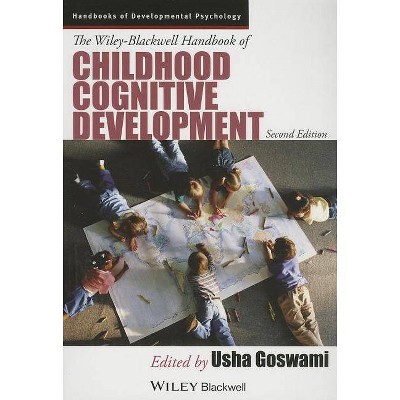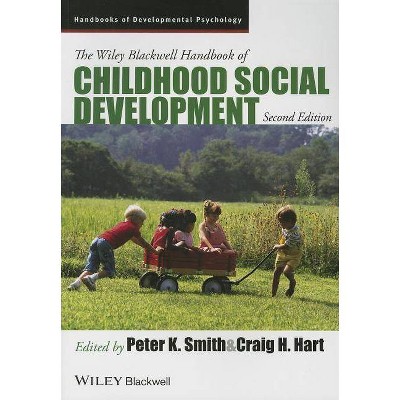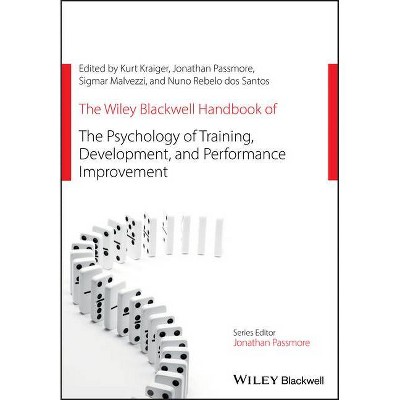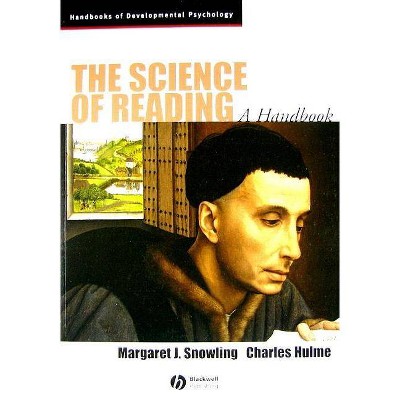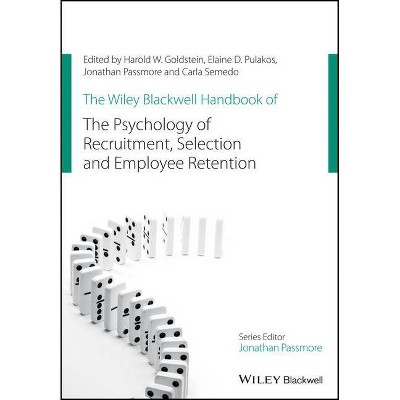The Wiley-Blackwell Handbook of Childhood Social Development - (Wiley Blackwell Handbooks of Developmental Psychology) 2nd Edition (Hardcover)
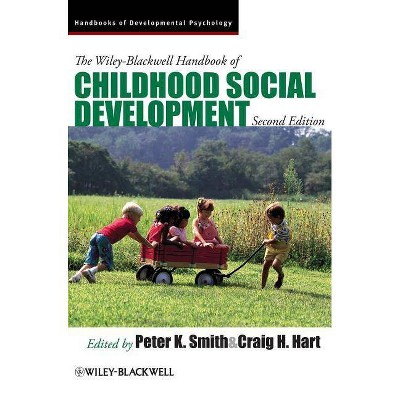
Similar Products
Products of same category from the store
AllProduct info
<p/><br></br><p><b> Book Synopsis </b></p></br></br><i>The Wiley-Blackwell Handbook of Childhood Social Development</i><i>, Second Edition</i> presents an authoritative and up-to-date overview of research and theory concerning a child's social development from pre-school age to the onset of adolescence. <ul> <li>Presents the most up-to-date research and theories on childhood social development</li> <li>Features chapters by an international cast of leaders in their fields</li> <li>Includes comprehensive coverage of a range of disciplinary perspectives</li> <li>Offers all new chapters on children and the environment, cultural influences, history of childhood, interventions, and neuro-psychological perspectives</li> <li>Represents an essential resource for students and researchers of childhood social development</li> </ul><p/><br></br><p><b> From the Back Cover </b></p></br></br>Building on the success of the highly acclaimed first edition<i>, The</i> <i>Wiley-Blackwell Handbook of Childhood Social Development</i><i>, Second Edition</i> continues with its presentation of the most thorough, authoritative, and up-to-date overview of research and theory concerning children's social development from pre-school age to the onset of adolescence. <p>Contributions from an international cast of leading experts in their respective fields incorporate the latest findings and developments in each of the topics covered in the first edition ? ranging from the family context, the peer group, social skills and social cognition, play, helping and moral reasoning to cooperation, competition, aggression and bullying, as well as children with special needs.</p> <p>This new edition is revised and updated throughout; it includes new chapters on issues such as children and the environment, cultural influences, the history of childhood, interventions, and neuro-psychological perspectives. Each chapter summarizes existing knowledge in the field, synthesizing the latest research in an accessible manner, while at the same time highlighting areas of emerging interest and growing debate. Editorial commentaries prefacing each section provide further synthesis and clarity for the topics covered.</p> <p><i>The</i> <i>Wiley-Blackwell Handbook of Childhood Social Development</i><i>, Second Edition</i> presents students, practitioners, and researchers alike with an invaluable resource for accessing the latest research and theories that shape our understanding of the social development of children.</p><p/><br></br><p><b> Review Quotes </b></p></br></br><br><p>"Anyone who has wrestled with these questions will want this book on their shelves. . . This is the definitive authority on raising a healthy social child from 3 years to adolescence." (<i>Parent City</i>, 6 November 2013)</p> <p>This is what a handbook should be. It is an invaluable resource comprised of chapters by the top people in the field providing comprehensive, up-to-date coverage of the full range of topics on social development.</p> --Larry Nucci, University of California, Berkeley <p>The Editors set out to capture emerging trends in the field and the results are encouraging: promising new developments in our understanding of social development are described, and ideas for new research are explicitly set out. The strengths of the first edition remain: the clarity of the text and the thoroughness of the coverage. It is undoubtedly an exceptional advanced book which will be very widely used and appreciated.<br /> --Judith Dunn, King's College London</p> <p>This handbook is an important resource for students and researchers alike. It succinctly summarizes the state of the field, with scientific leaders discussing the wide range of research on children's social behavior.<br /> --Felix Warneken, Harvard University</p> <p>This handbook is a landmark achievement. It is an indispensible guide to the new theory and research on social development, and the chapters provide insights into practical applications for schools and society. It is destined to become an "instant classic" -- the authoritative reference book on child social development.<br /> --Andrew N. Meltzoff, University of Washington</p><br><p/><br></br><p><b> About the Author </b></p></br></br><b>Peter K. Smith</b> is Professor of Psychology and Head of the Unit for School and Family Studies at Goldsmiths, University of London. He is co-author of the leading textbook <i>Understanding Children's Development</i> (Fifth Edition, Wiley, 2010), the recently published <i>Children and Play</i> (Wiley-Blackwell, 2009), and many other books and articles. <p><b>Craig H. Hart</b> is Associate Academic Vice President for Faculty at Brigham Young University, where he has also served as a department chair and an associate dean in the College of Family, Home, and Social Sciences. He has authored or co-authored numerous scientific papers and book chapters on parenting/familial linkages with children's social development, most recently from a cross-cultural perspective. Dr Hart also serves on the Biobehavioral and Behavioral Sciences subcommittee, National Institute of Child Health and Human Development (NICHD).</p>
Price History
Price Archive shows prices from various stores, lets you see history and find the cheapest. There is no actual sale on the website. For all support, inquiry and suggestion messagescommunication@pricearchive.us
